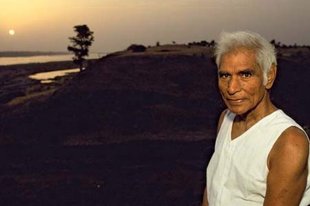Mother Teresa’s Nirmal Hriday
The famous English essayist and lexicographer Samuel Johnson has said – ” Kindness is in our power, even when fondness is not.” Altruism is intrinsic to being human, and even if a person is not your favourite or is a stranger to you, yet you can feel compassion for him. Look up the daily newspaper or browse the web, you’ll find numerous articles eulogising acts of heroism of common people. The now colloquial phrase “good Samaritan” derives from a Biblical parable mentioned in the Gospel of Luke. A certain traveller, on the road to Jericho, was beaten, robbed and left half- dead. A priest and a Levite passed by, but they did not stop to help him. Then came a Samaritan who was moved by the sad plight of the wounded man. He took him to an inn and tended to his wounds. It is usually assumed that the man in distress was a Jew, and during Jesus’ time, the Jews and the Samaritans were ill- disposed towards each other. The parable is cleverly unconventional as it shows a Samaritan overcoming his antipathy and helping a Jew, and that too a stranger. The ethic is so widely admired that today there are many charitable organisations and hospitals named after the ‘good Samaritan’.
Jesus himself was the quintessential ‘good Samaritan’. However, the history of mankind can furnish unending examples of moral and ethical giants. One such pure soul was Mother Teresa. Not many words are needed for her introduction here as every school textbook in India fondly recounts her life story. Show a child the picture of a wrinkled yet serene woman in a white saree with a blue border and s/he will tell you who she is. Born Anjeze Gonxhe Bojaxhiu, she was a Roman Catholic religious Sister of Albanian origin. She founded the religious congregation, Missionaries of Charity, which is presently active in 133 countries, running schools, orphanages, dispensaries and hospices for people with fatal diseases like leprosy, AIDS and tuberculosis. She was awarded the Padma Shri in 1962, the Nobel Peace Prize in 1979 and the Bharat Ratna in 1980 for her selfless dedication to the cause of humanity.
Two years after establishing the Missionaries of Charity, Mother Teresa founded the Home of the Pure Heart (Nirmal Hriday) in 1952 in Kalighat, Kolkata. Formerly known as Mother Teresa’s Home for the Dying Destitutes, this free hospice is a refuge for the homeless, the sick and the unloved. Its motto is to serve the poorest of the poor, and help the rejected and the abandoned people die with dignity. Volunteers from many different countries willingly offer their services here. Before being officially established as the home for the dying, the building was an old, dilapidated temple of the Hindu goddess Kali. This can be interpreted symbolically as the divine energy Kali is the goddess of Time and Change, and the dying destitutes, having completed the full circle of their lives, come here for the final closure.
Nirmal Hriday provides very basic amenities to the sick and the emaciated. It has often been criticised for its refusal to modernise or upgrade its facilities even after receiving huge amounts of fund. Shuma Raha of The Telegraph wrote a first- hand account of the place. She found the Sisters stubbornly resistant to change. Dinner is still served at 4.15 in the evening- a meal of “two pieces of bread and a potion of potato curry”, with water being served in plastic buckets. The beds for the patients are very narrow and there are no advanced medical aids. Raha quotes Christopher Hitchins, who wrote the controversial book Missionary Position : Mother Teresa in Theory and Practice – “The care facilities are grotesquely simple… miles behind any modern conception of what medical science is supposed to do…” “Very rightly it is said that she tends to the dying, because if you were doing anything but dying she really hasn’t got much to offer”.
The strong critical sentiment expressed in the quote cannot be dismissed as irrelevant. If the institution has adequate financial resources, then it must acquaint itself with modern medical science. However, Mother Teresa and her followers are entitled to highest respect as caring for the homeless people is a wonderfully humane work. The volunteers of Nirmal Hriday find their task personally edifying. Shuma Raha quotes Patricia Fernandes, a nurse from Madrid, who believes that the suffering she sees around helps her “understand my own suffering”. The volunteers’ work requires sincere commitment and benevolence as they are emotionally and physically exposed to decaying flesh and life- threatening diseases.
The whole Nirmal Hriday initiative ensures that the socially deserted people are not left uncared for. It brings together both the helpful and the helpless, and binds humanity with the common bond of sympathy. You will not find an impeccably clean hospital room with a television and an air conditioner here, but you’ll definitely encounter misery as well as charity and selfless service.





